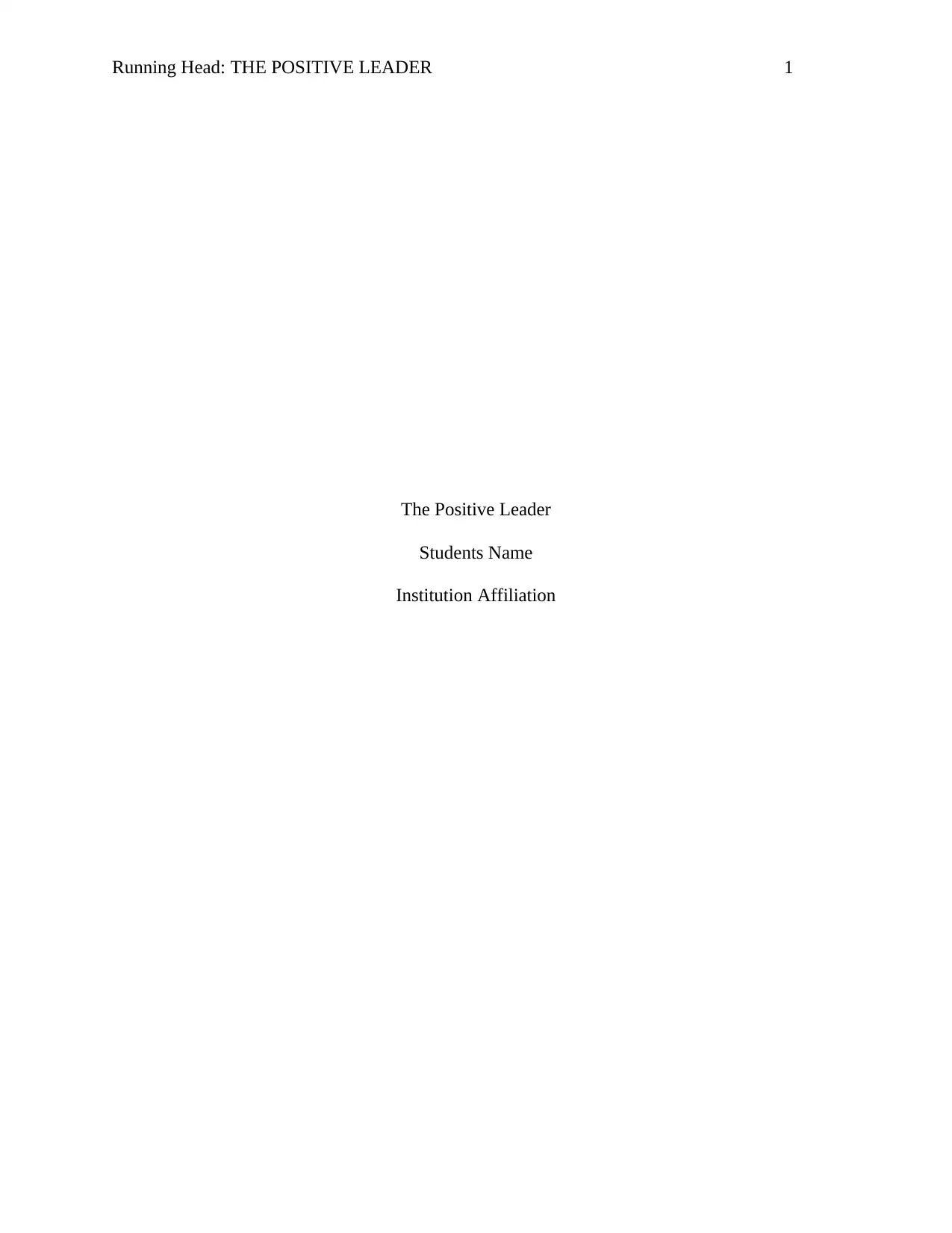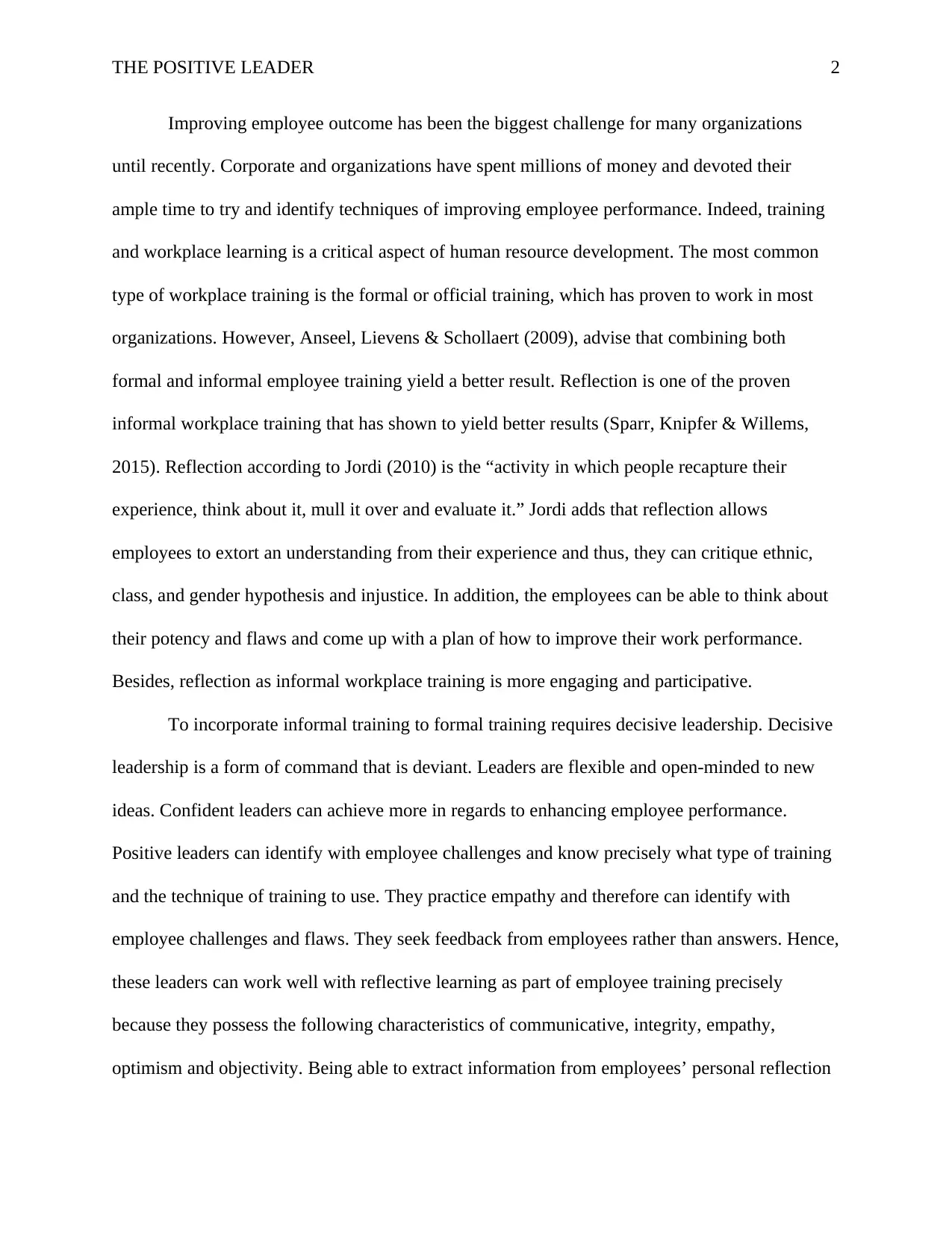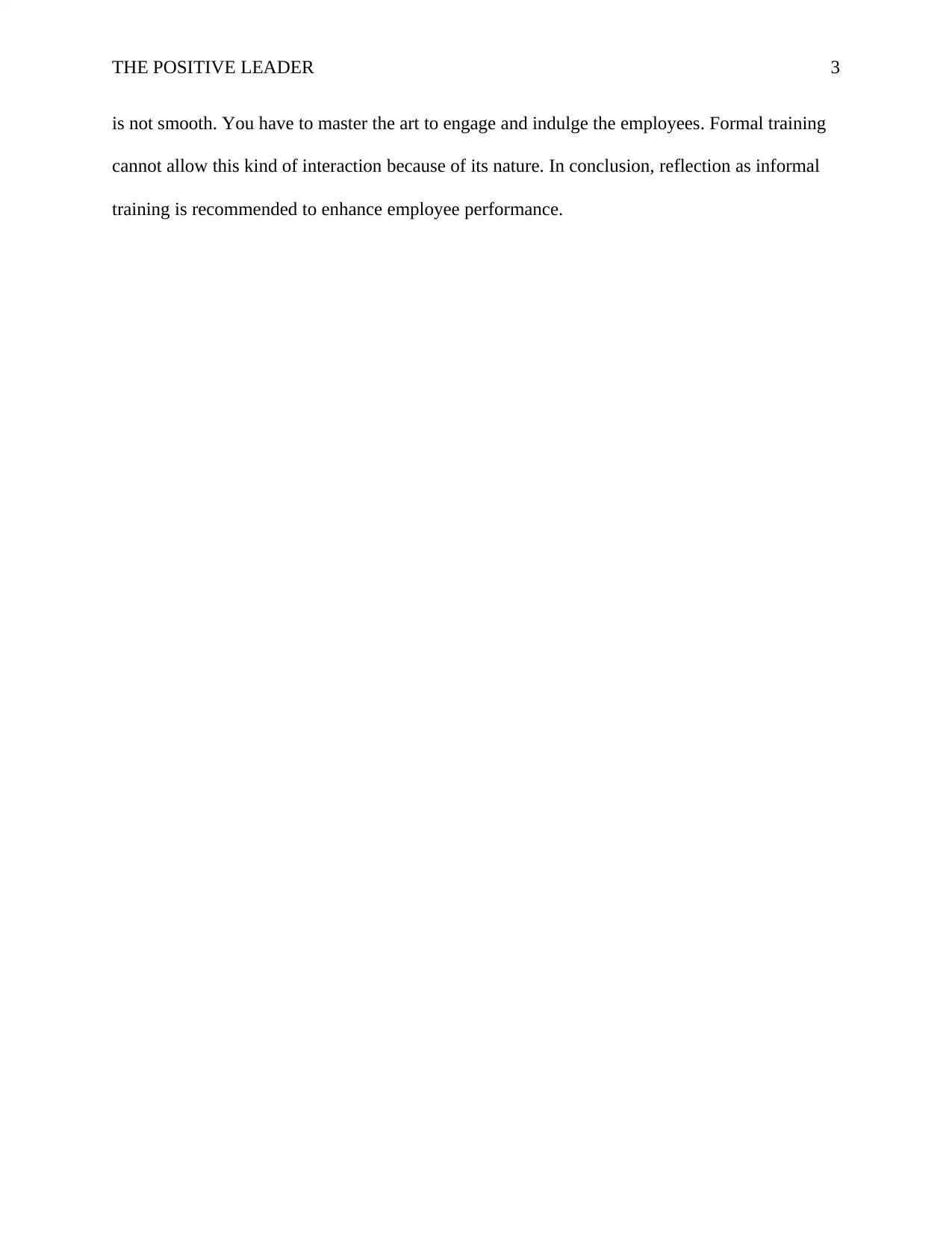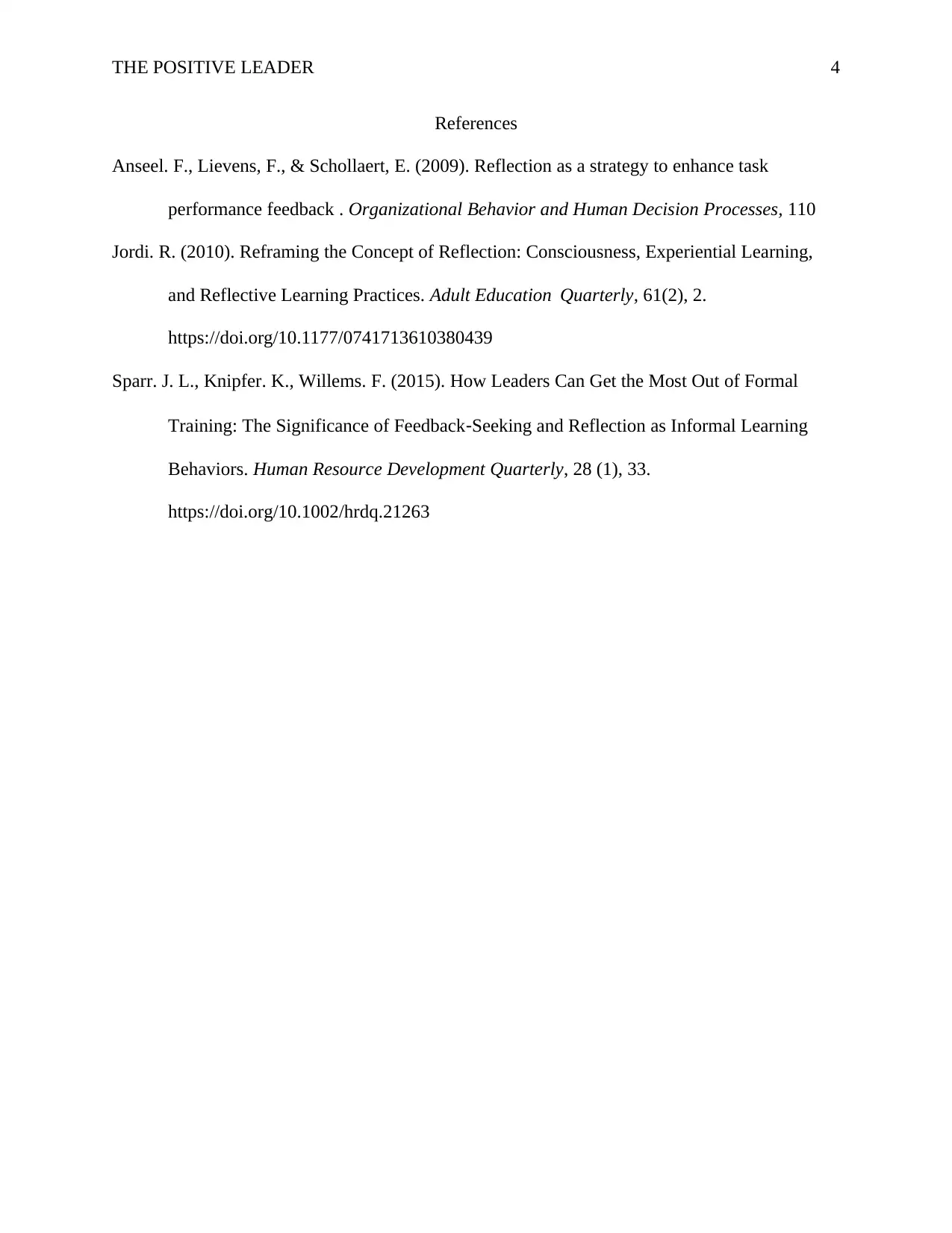The Positive Leader: Analyzing Employee Outcomes and Reflection Essay
VerifiedAdded on 2023/06/04
|4
|550
|387
Essay
AI Summary
This essay analyzes the concept of the positive leader and its impact on employee outcomes, focusing on the use of reflection as an informal training method. It begins by highlighting the challenges organizations face in improving employee performance and introduces the importance of training and workplace learning, including both formal and informal approaches. The essay emphasizes the benefits of reflection as a proven informal training technique, as defined by Jordi (2010), and how it allows employees to extract knowledge from their experiences and critically evaluate assumptions. It then discusses the role of decisive and positive leaders in incorporating informal training, emphasizing characteristics such as communication, integrity, empathy, optimism, and objectivity. The essay concludes by recommending reflection to enhance employee performance, highlighting the need for leaders to engage employees effectively. References to relevant research are included to support the analysis. The essay fulfills the requirements of Assessment item 4, focusing on analyzing and reflecting upon interventions aimed at increasing employee outcomes using reflection.
1 out of 4










![[object Object]](/_next/static/media/star-bottom.7253800d.svg)